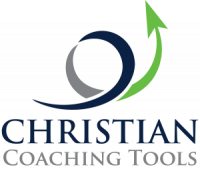
by Gary Reinecke | Dec 23, 2021 | Uncategorized |
You are walking through possibly the most stressful couple of years that our generation will face. Coping mechanisms were created for times like these. But they aren’t meant to become habits. When they do, I find one area that suffers is our physical health—diet and exercise. These tips for coaching for physical health may be helpful to your clients… and maybe even yourself.
It may be a stretch to connect our physical health to scripture. However, I would gently suggest that as followers of Jesus it just makes good, common sense to be in the best physical, mental, and spiritual shape as we possibly can. Not solely for our benefit or the benefit of our loved ones, but as an act of worship and service to the Master. Doesn’t it make sense to prioritize your physical self care as much as your spiritual soul care? I am not suggesting that we all need to be svelte–not at all. But I am suggesting that we strive to be the very best version of ourselves for the glory of God.
It’s no secret that your physical health impacts your mental, emotional, and spiritual development. All areas of our health are important, but as a society we’ve relegated our physical health further and further down the list of personal disciplines. And so goes our spiritual and emotional health with it! Here are some important statistics that Health and Wellness Coach, Gina Reinecke, shares with her clients:
[Tweet “As you know, your physical health impacts your mental, emotional and spiritual development. “]
Obesity is one of the most pressing health issues of our time
- Over 70% of adults in the United States are overweight or obese, with nearly 40% of our population obese.
- Being overweight or obese increases the risk of developing many related, often serious conditions (e.g. heart disease, stroke, diabetes, and even some forms of cancer) and has a substantial economic impact.
- The U.S. spends an estimated $190 billion on obesity-related medical conditions, and the average annual medical costs for those with obesity are over $1,400 higher compared to people in a normal weight range.
- Other countries are also experiencing growing rates of obesity and, worldwide, obesity has nearly tripled since 1975.
- Weight loss can help to reduce both the medical and economic impact of obesity by decreasing the risk of developing associated chronic diseases.
©2019 Medifast Clinical Studies Overview
Reasons we struggle to make physical health a priority
Some people are really good at keeping commitments to themselves in this arena. Others struggle. Here are some reasons people struggle to prioritize their physical health:
- Laziness
- Negative experiences
- Accountability
- Weather
- Motivation
- Accessibility
- Vision
Stop-Challenge-Choose

This is a very simple tool that was introduced by Dr. Wayne Scott Andersen, Co-Founder of OptaVia. I have modified Dr. Andersen’s tool for our purposes here, and it’s a valuable resource to apply to your physical well-being:
STOP: What do you need to stop doing?
CHALLENGE: What specific actions can you take to achieve different results?
CHOOSE: What new behavior, technique, or mindset changes will you adopt immediately?
Used with permission from Dr. A’s Habits of Health (pgs.133-137) by Dr. Wayne Scott Andersen
5 ways to break the cycle and make health a priority
I’ve always been a believer in starting wherever you are on your health journey. It’s not uncommon that I hear from friends who have maintained a rather sedentary lifestyle for a decade or more and, after seeing a YouTube video of an Adventure Race, get the idea that they should begin training for a marathon! That is not a good idea. Most likely, that person is going to get injured. Assess where you are now and start there!
- Find activities you enjoy
- Take baby steps–like walking your block–and then increase gradually over time
- Take a health assessment with a health coach
- Find a buddy to do activities you both love to do together
- Remove one thing in your diet you are confident is causing you trouble
7 coaching questions to help guide a physical health journey:
It’s one thing to tell a person what they need to do–it’s quite another to help them discover it for themselves. Here are some coaching questions that can help:
- Can you describe “why” it is important for you to focus on your physical health? Your answer(s) might be:
- play with your grandchildren
- go on a hike
- outlive a parent that died prematurely
- etc.
- In what ways does your “why” compel you?
- What does success in your health look like?
- Identify your greatest challenges?
- What changes do you need to reach your goal?
- Who do you know can help you on your journey?
- What is one simple thing you can do that will help you get started?
It’s time to focus on your health!
Introducing a FREE six week series (Wednesdays at 8am PST starting January 12, 2022) specifically designed for ministry leaders!
You are invited to the Healthy Habits Workshop Series to set the tone for 2022. I will be partnering with my colleague Micah Dodson (Thrive Church Planting), along with Gina Reinecke (OptaVia Health Coach) to help you create a plan to help you thrive in 2022.
Healthy Habits Workshop Series

by Gary Reinecke | Dec 22, 2021 | Uncategorized |
Seven Questions for Establishing Healthy Mental Agility in 2022
You are walking through what are possibly the most stressful couple of years that our generation will face. Coping mechanisms were created for times like these. But they aren’t meant to become habits. When they do, one thing that suffers is our emotional health—our mental and psychological well-being. Following are some coaching tips for emotional health that may be helpful to your clients…and maybe for you, too.
“Mismanaged emotions not only determine whether you will become sick but also whether you will be happy, fulfilled, and successful in your life”
Hopelessness And Progression Of Heart Disease, Arteriosclerosis Thrombosis Vascular Biology
Everson, S A. Kaplan, G A. Goldberg. D E. Salon,R. 17, (8) pages 1490-1495.
[Tweet ““Mismanaged emotions not only determine whether you will become sick but also whether you will be happy, fulfilled, and successful in your life.””]
That quote says a lot. As a leadership and ministry coach I do not have the expertise of a counselor, psychologist, or medical doctor. However, I share my perspective based on coaching hundreds of leaders in their mental agility (self-awareness or what is commonly known as Emotional Intelligence – EQ). From that experience, I want to share three observations:
Three observations on mental agility
- What the authors of the above quote are not saying: if you manage your emotions well you will live a healthy, happy, fulfilling and successful life. We all know people who do all the right things to manage their emotional health yet suffer the cruelest complexities of life. Yet there are things within our control that, if managed well, can mitigate the side effects that lead to some physical ailments. The things that are outside of our control–like DNA, pre-existing conditions, or certain pre-dispositions–we have to navigate as they come.
- Happiness is not the same as joyfulness! Happiness is a temporary state. Joy comes from the ongoing, internal work of the Holy Spirit. You might not be happy at the moment–in fact, you might be suffering, grieving or feeling downright ornery–but you can maintain your joy in the experiential knowledge that God is always at work, knowing He can sustain you through the most difficult life and ministry challenges.
Though the cherry trees don’t blossom
and the strawberries don’t ripen,
Though the apples are worm-eaten
and the wheat fields stunted,
Though the sheep pens are sheepless
and the cattle barns empty,
I’m singing joyful praise to God.
I’m turning cartwheels of joy to my Savior God.
Counting on God’s Rule to prevail,
I take heart and gain strength.
I run like a deer.
I feel like I’m king of the mountain!
Habakkuk 3:17-18 (The Message translation)
3. Fulfillment and success are not the best gauge of well-managed emotions! This third point takes me to our current state of affairs at this moment in history.
Most–if not all–leaders who have led their churches well through the pandemic have at some point questioned their judgment. This has led some leaders to new heights and others to greater depths than they have known before. Leading in this season is a wild roller coaster ride and not for the faint of heart.
Can you relate to the roller coaster of mental agility?
In our current conditions your level of fulfillment and success may have hit a lull (or an all-time low). In these moments you are being challenged to respond differently. This may be more difficult than you anticipated. Yet, you are learning to remain in the moment, steadfast and unwavering, learning to pivot in order to see your situation from God’s perspective. This has allowed you to take a deep breath, celebrate the good things that can be redeemed from the situation at hand and move on with a renewed sense that you did what needed to be done based on the information at your disposal. Doing this over and over again is helping you develop new muscles of resilience.
So much is happening right now in our world that is shaking the foundations of the church. If I were to describe what is occurring in our world it would be old news by the time you read this blog due to the rate of change and the expediency of social media! Rather than attempt to diagnose what’s happening, allow me to share seven questions to help you grow your mental agility and exercise your resilience when the path forward is unclear and changing without advance warning.
7 questions to help you grow your mental agility
-
- What insights about your mental agility can you glean as you have led over the past 21 months?
- How can you consolidate those into new behaviors to manage your emotions?
- Reflect on a real situation and consider how you can apply that learning in real-time?
- What difference will it make if you do this well?
- Is the benefit worth the effort?
- What will you do to move the learning from a theory to a practice?
- After you have taken a step of action, what new insight(s) do you have?
It’s time to focus on your health!
Introducing a FREE six week series (Wednesdays at 8am PST starting January 12, 2022) specifically designed for ministry leaders!
You are invited to the Healthy Habits Workshop Series to set the tone for 2022. I will be partnering with my colleague Micah Dodson (Thrive Church Planting), along with Gina Reinecke (OptaVia Health Coach) to help you create a plan that allows you to thrive in 2022.
Healthy Habits Workshop Series

by Gary Reinecke | Dec 17, 2021 | Uncategorized |
Our Christmas Review:
And once again, Christmas is upon us!
In the hustle and bustle of Christmastime, it’s easy to find ourselves lost…we all, to some degree, can get caught up in the unavoidable commercialism and social pressure of Christmas. Yet I have found that when I make some time to quiet my mind, it is a great season for reflection. With the new year just around the corner, it is naturally a wonderful time to look back on the past year, recalling the joys and the struggles, the lessons learned and the growth we have seen in ourselves and all around us.
Since last Christmas much has changed, and in many ways we are all still adapting to the new normal. It has been a busy year personally and professionally. Today, I want to share some of the highlights of this year and take some time to show my appreciation for everyone who is on this journey with me.
Personal review:
This has been a year of growth and change for my family. Last August my wife, Gina, and I helped relocate both of our kids to Boston. Parenting young adults has been a big learning curve! We are learning and finding people to lean on in this new stage of our journey as parents.
Gina’s health coaching business has grown steadily. InFocus has partnered with her to do some wonderful work with three unique groups that started out as clients and took the step to become health coaches. We are especially proud to say that about a third of her team is made up of people of color. You can read more about our partnership – CLICK HERE. We are also grateful to share that Gina’s parents in Australia are finally coming out of lockdown!
This year, one of my personal goals regarded my own spiritual growth. I had been feeling stagnant in my spiritual life and knew it was time to create some intentional space to learn and grow. I have enlisted in a three-year cohort through Fuller Seminary’s Doctoral program and began working with a spiritual director. Together, we are exploring my relationship with Christ in some deeper and refreshing ways. It has been so revitalizing to my soul!
I want to finish with a personal accomplishment: I am likely to surpass my 2020 record in miles and elevation in mountain biking! My love of mountain biking is only growing!
Professional review:
This has been a busy year for me in ministry. I am proud to look back on what InFocus and our affiliates have accomplished. It’s been a great year for collaboration!
- Training Coaches to Help Churches in Transition
In conjunction with Micah Dodson, I began working with leaders from a denomination in the Pacific Northwest who are coaching churches in transition to aid these congregations in their revitalization. We trained these leaders in the coaching process and saw significant growth. Here is what the leaders shared about our work:
“Over this past year, our district contracted with Dr. Gary Reinecke of InFocus Ministries to train several turnaround coaches. Our aim is to better serve, support, and resource our pastors who have been called to lead churches in need of revitalization. Engaging this partnership with InFocus immediately resulted in fourteen of our pastors receiving monthly coaching. No doubt these numbers will continue to rise as our coaches gain experience and additional pastors begin to hear of the impact and value from those already engaged. The benefits have been significant. Our pastors are encouraged because they feel less isolated. And, because they are experiencing personal growth and developing their leadership capacity, their leadership teams are also being impacted. This has been a worthwhile investment. I highly recommend Dr. Gary Reinecke and InFocus Ministries. He is a ‘master’ coach who will serve you well.”
We are so proud of our Leadership Collective! In collaboration with Russ Siders, we focused on multi-ethnic churches in 2021 with a focus on building and developing strong leaders who are passionate about developing leaders, beginning with the newest disciples and ending with a culture of ministry multiplication. The goal is to raise up church leaders and equip individuals to grow and transform their communities.
- Five Disciple Coach Habits
In 2020, InFocus and our affiliate, Micah Dodson, began a workshop called Five Disciple Coach Habits. We hosted another round in October 2021, examining these five habits and offering a series of private coaching sessions to follow. We are so pleased with how the webinar turned out and gained so much from our coaching sessions!
My colleague, Bob Logan, and I launched the Christian Coaching Tools platform and are in the final stages of publishing Christian Coaching Excellence (coming out in January 2022). Our vision is to raise the level of Christian coaching around the world by developing the best coaching resources and tools.
[Tweet “…final stages of publishing Christian Coaching Excellence (coming out in January 2022).”]
I am in the process of writing a new book with my colleague Colin Noyes in Australia. In this book we introduce two unique perspectives of a new disciple’s spiritual journey:
Move the starting point:
First, we move the starting point of a new disciple’s journey. As people go about their everyday business and encounter a disciple of Christ who is willing and able to engage in spiritual conversations, their awareness is triggered on a subconscious level until it happens enough times that it surfaces to a conscious awareness. A more familiar–and common–place in which people are initially aware of the beginning of the disciple journey is when they enter a church or participate in a discipleship program.
Self-awareness:
Second is the guiding principle of a disciple coach: “What a new disciple discovers for themselves will empower them to take the next step on their disciple-making journey.”
The most difficult part of this year has been discovering how to help pastors and church planters navigate the pandemic and enter a new normal. We at InFocus are infinitely thankful for our clients and affiliates! It is because of our work together that we have made it through these unprecedented times and accomplished so much along the way.
[Tweet “The most difficult part of this year has been discovering how to help pastors and church planters navigate the pandemic and enter a new normal.”]
Thank you for your continued support of InFocus and our work!
I would love to list the names of all the leaders that serve faithfully around the world, but due to confidentiality I am unable to do so. I will just say that our combined efforts result in the mission to make more and better disciples, develop leaders, and plant healthy churches that reproduce healthy churches.
Merry Christmas to you all!
Gary Reinecke
Photo by Annie Spratt on Unsplash

by Gary Reinecke | Dec 14, 2021 | Uncategorized |
Introducing a FREE six week series (Wednesdays at 8am PST starting January 12, 2022) specifically designed for ministry leaders!
How is your health today compared to this time last year?
Did your plans get derailed (again!) by the demands of life and ministry?
Do you feel empowered or defeated, proud or ashamed of the state of your health?
Do you have a vague sense of what you wish to change, or do you have a solid plan in place for your physical, mental, and spiritual well being in 2022?
Putting a microscope to our own habits isn’t always an easy or comfortable task. But doing it in a safe space with other sojourners can take the edge off (and take us off the edge!). Creating a plan is the first order of business, and we want to help you do just that. You are invited to the Healthy Habits Workshop – it’s completely free and designed specifically for ministry leaders!
Here’s what one pastor recently shared about his health journey:
If I am going to take care of people, the only way I can do that is if I am taking care of myself. Too many times pastors are at the beck and call of staff, congregants, and anyone who has a need, putting ourselves on the back burner.
When I began to give attention to my health I had so much more energy, my sleep was better, I was able to be more alert and present with people everyday.
It took me from a place of feeling mentally oppressed, to feeling like I could make a difference in people’s lives.
In this free six-week series specifically designed for ministry leaders, you will have time and space to:
-
- Discover your “why?” Why do you even care to be healthy? What difference will it make to the quality of your life and ministry? What has God called you to, and how can you powerfully step into that with your mind, body, soul and strength?
- Evaluate your current reality and discover some simple approaches to shore up areas that are holding you back and draining your energy.
- Learn basic strategies to upgrade your physical, mental, emotional, and spiritual well-being. It will touch on the personal aspects of creating habits that will help you sustain what you begin. Ultimately, this is a great way to kick-off 2022.
I will be partnering with my colleague Micah Dodson (Thrive Church Planting), along with Gina Reinecke (OptaVia Health Coach) to help you create a plan to help you thrive in 2022.
HEALTHY HABITS WORKSHOP SERIES
WEDNESDAYS, JAN 12, 19, 26, FEB 2, 9, 16 at 8:00am PST/11:00am EST
TO REGISTER, EMAIL US AT admin@infocusnet.org
Workshops are presented in a Zoom format in weekly, one-hour sessions. The workshop is limited to 15 members to maximize interaction among the participants. We do not promote any organization or program, and we are not affiliated with a particular religious group. The presenters are volunteers who provide information and support. They are not licensed to give any medical or psychological advice in health, wellness, or other fields.
TO REGISTER, EMAIL US AT admin@infocusnet.org

by Gary Reinecke | Dec 11, 2021 | Uncategorized |
It might go without saying that self assessment as a coach begins with the self. It starts with reflection and with a growing awareness of your own strengths and weaknesses. At some point, however, “self-assessment” moves beyond what the self alone can analyze. We all need another set of eyes (and usually more than one!). We need people we trust and people who know us well to point out things in us that we don’t see ourselves: mentors, coaches, or even trusted friends. There are also many great tools we can utilize to get a better idea of where we are, what our strengths and weaknesses are, and how to best move forward. These are all methods of soliciting feedback, which is one of the behavioral expressions of self-assessment.
Solicit feedback: Actively seek out feedback from others, rejecting what is destructive, but being open to what is constructive.
One of the best ways I have grown as a coach is through real-time feedback from a qualified coach mentor. This can be done in one of two ways:
- Video: record a coaching appointment using Zoom, or better yet, an app like Sonix that records as an mp3 file with transcription. This allows your coach mentor the opportunity to review the verbatim along with your recording to pin-point and highlight areas for feedback.
- Live: during a live session your coach mentor will observe you in action and debrief with you afterwards.
I have adopted the second practice in training coaches. The power of real-time, in-the-moment feedback is significant. For you as the coach, the added pressure of knowing that your mentor is observing raises your level of self-awareness a couple of notches (e.g. imagine your mentor in the congregation as you deliver a sermon and then giving constructive feedback afterwards).
Recently while observing a coach by way of Zoom, I noticed a recurring habit the coach exhibited. The coach spoke over the client to the level that it was disrupting the flow of the conversation. Eventually, the client stepped back and was forced to stop initiating conversation or pausing too long, knowing the coach would immediately jump in. The client learned to accommodate the coach and waited until the coach was done pontificating before speaking. This was a real problem for the client-coach dynamic. Once I saw this play out a couple of times, I realized I would need to bring it to the attention of the coach, which I did during the debrief afterwards. Imagine what it would be like to be on the receiving end in a coaching conversation where the coach interrupted you – over and over again! Without the feedback I provided as the coach mentor, that coach most likely would have continued to reinforce the habit.
[Tweet “One of the best ways I have grown as a coach is through real-time feedback from a qualified coach mentor. This can be done in one of two ways”]
Here are five other suggestions for great ways to solicit feedback on your coaching:
- Decide the best way to ask for feedback and ask yourself these questions:
- How formal or informal do you want to be?
- What specific questions will you ask?
- Are there certain areas in which you’d like to ensure you are getting feedback?
- Schedule a recurring time when you will ask for feedback from clients and determine frequency by asking yourself these questions:
- Will it be quarterly? Every six months?
- Will you ask everyone at once or stagger your requests?
- Consider what would be most helpful to you. Put those times on specific dates on your calendar.
- Create a list of people you could ask for feedback on your coaching. This list should include specific names of clients, peer coaches, mentors, and family/friends. (Don’t overlook asking family and friends. Even when they aren’t directly experiencing your coaching, they can often provide extremely helpful feedback.)
- Try the fishbowl exercise: bring in several people in your field. Share your situation, difficulties, methods…whatever is on your mind. Then, allow your peers to give feedback on how you could be more effective. Be willing to accept what’s helpful and reject what isn’t helpful. Remember, not all feedback is good feedback. Weigh it and test it in the company of others before committing to advice.
- Take the 360 degree Christian coach assessment. This is a consistent and dependable research-based assessment to provide an accurate picture of where you are as a coach. It is based on nine competencies and their behavioral expressions, created by Dr. Bob Logan, Dr. Chuck Ridley, and myself.
Are you interested in learning more about how to grow in your coaching excellence by leveraging the 360 degree Christian Coach Assessment as part of a learning community alongside a coach mentor? A full explanation of the Christian Coaching Excellence GrowthTrack is available.
Learn more at Christian Coaching Tools

Identify areas that need your focused attention as a Disciple Coach
DISCIPLE COACH QUIZ
Photo by NeONBRAND on Unsplash






